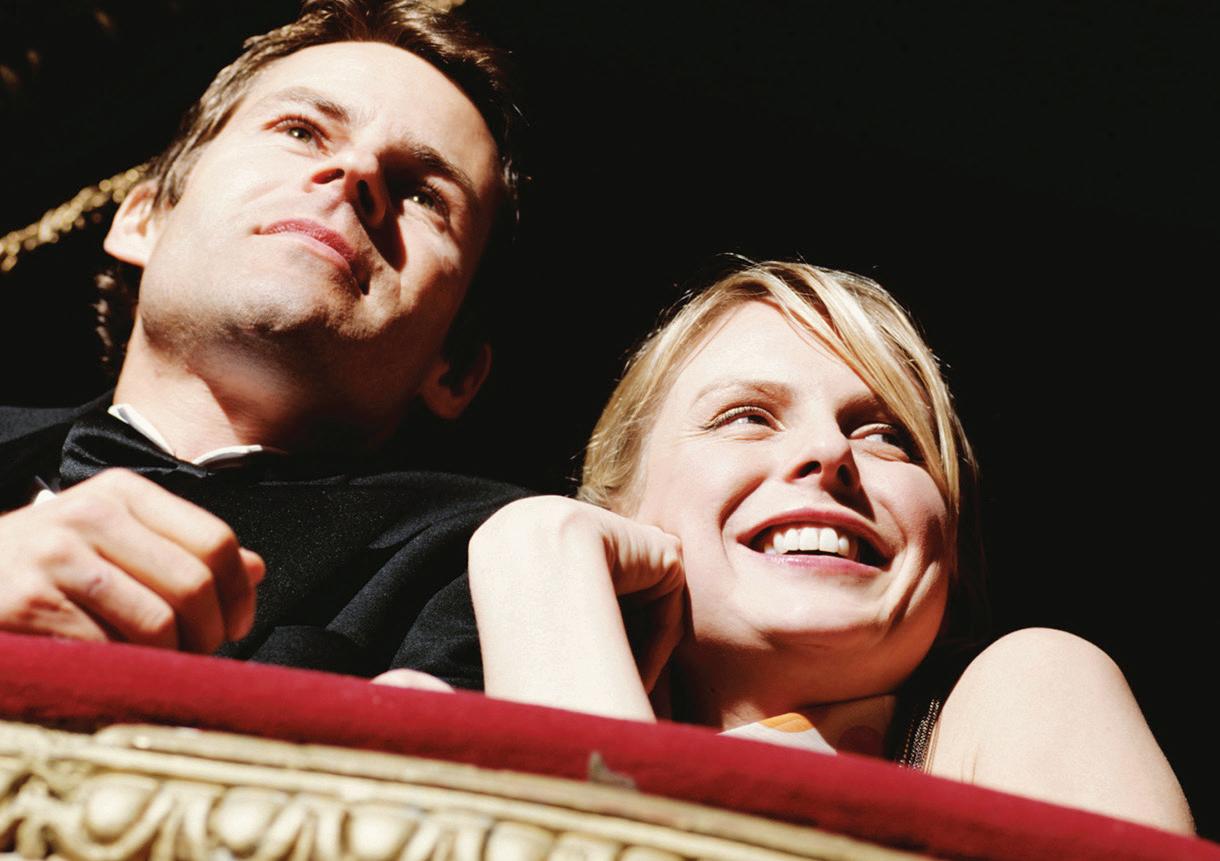
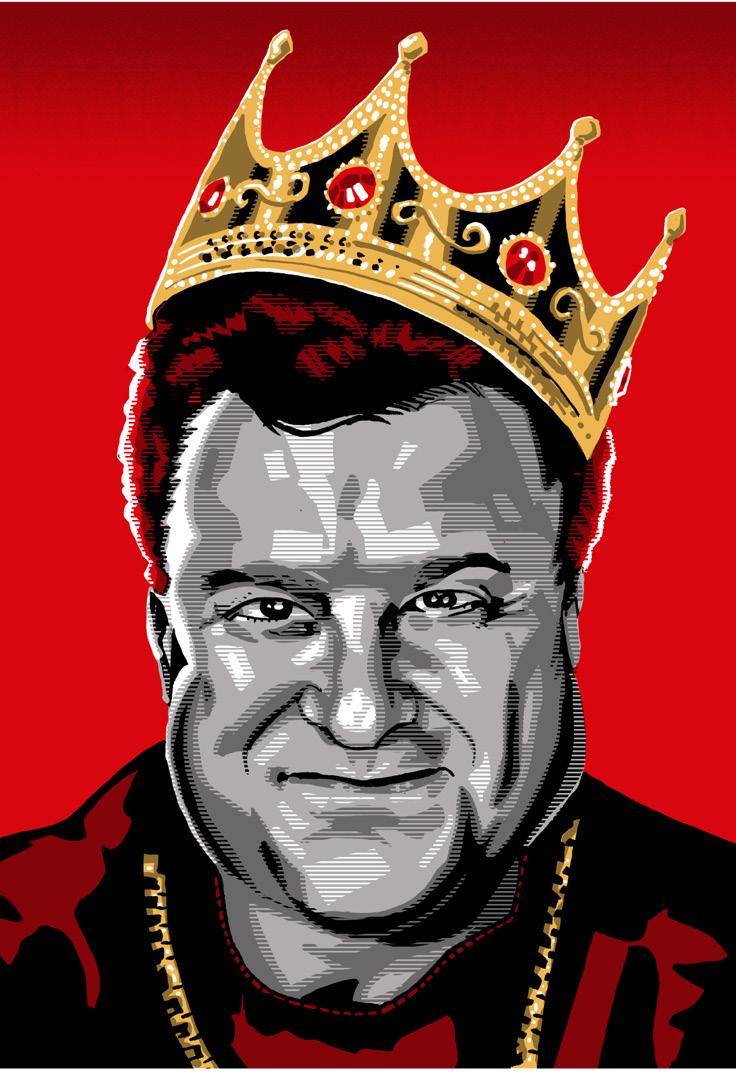


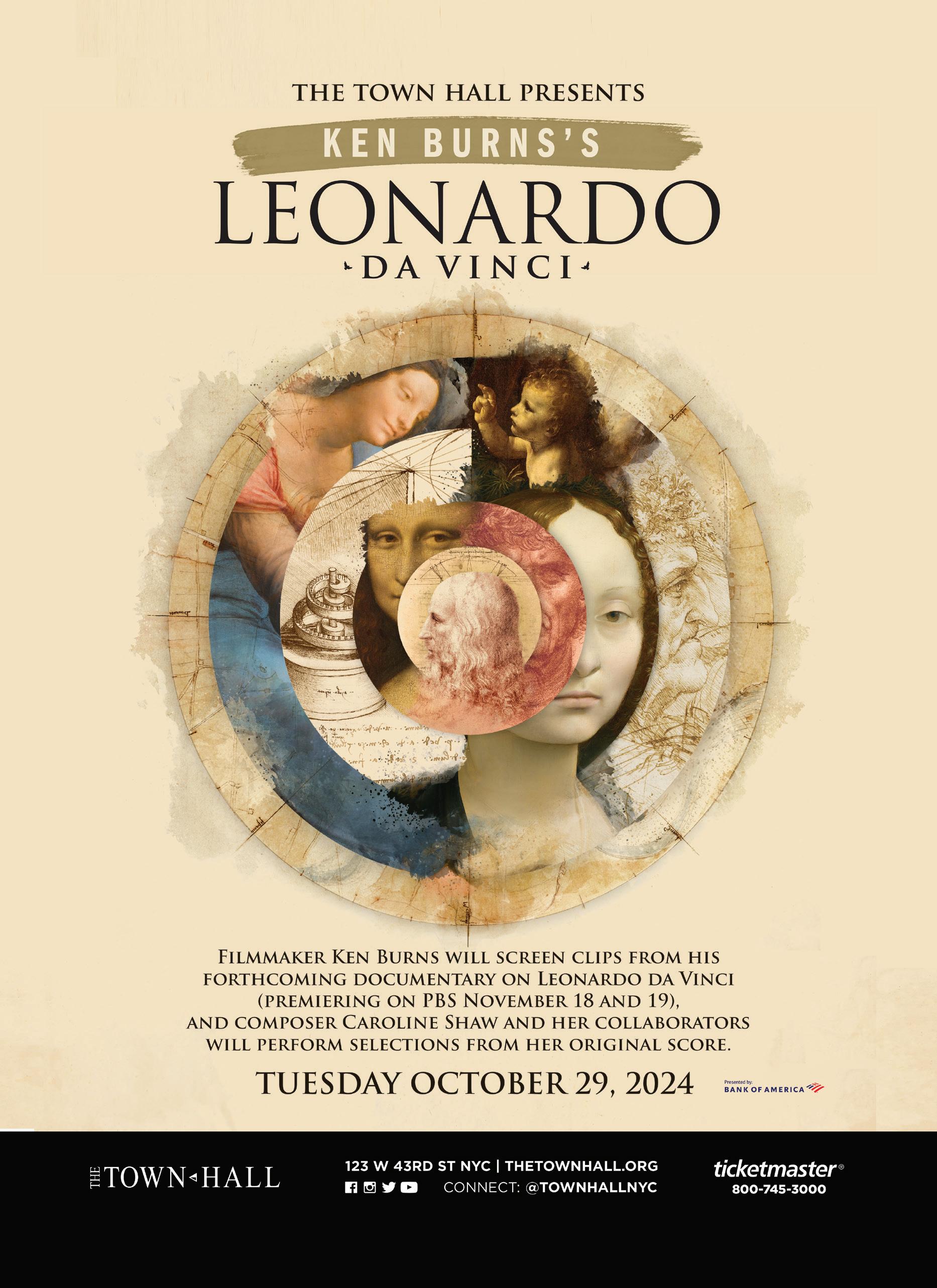







Welcome! And, may I add, congratulations. You are attending one of New York’s and America’s essential meeting houses, music venues and cultural institutions. I know that you will find the Town Hall Presents programming you are attending tonight to be timely and compelling. And each of our productions is an expression of our commitment to bring you significant, unique, eclectic and down right delightful events throughout the calendar year.
Welcome! And, may I add, congratulations. You are attending one of New York’s and America’s essential meeting houses, music venues and cultural institutions. I know that you will find the Town Hall Presents programming you are attending tonight to be timely and compelling. And each of our productions is an expression of our commitment to bring you significant, unique, eclectic and down right delightful events throughout the calendar year.
There is no place like The Town Hall. Founded “to promote good citizenship, social justice and general enlightenment through the education and expression of public opinion,” our hall’s world-class acoustics quickly became a calling card, and for over a century, playing The Town Hall stage continues to be a ‘must’ for musicians and singers from all genres and backgrounds.
There is no place like The Town Hall. Founded “to promote good citizenship, social justice and general enlightenment through the education and expression of public opinion,” our hall’s world-class acoustics quickly became a calling card, and for over a century, playing The Town Hall stage continues to be a ‘must’ for musicians and singers from all genres and backgrounds.
Whether visiting our storied auditorium for the first time, or returning to experience yet another great night live on our stage, you can feel the vitality in the room. The Town Hall is truly contemporary; purpose-built to open its doors to art, ideas and especially to you.
Whether visiting our storied auditorium for the first time, or returning to experience yet another great night live on our stage, you can feel the vitality in the room. The Town Hall is truly contemporary; purpose-built to open its doors to art, ideas and especially to you.
Upon its dedication in 1921, The League for Political Education opened the building you are now sitting in with the watchwords:
Upon its dedication in 1921, The League for Political Education opened the building you are now sitting in with the watchwords:
“It does not matter who you are, what you are, or from where you come, you are welcome.”
“It does not matter who you are, what you are, or from where you come, you are welcome.”
As president of the non-profit organization that preserves our landmarked auditorium and produces the Town Hall Presents events like the one you are attending tonight, I thank you for coming to The Town Hall. On behalf of the Board of Trustees, and our incredible staff of professionals, I echo the sentiment of our founders and assure you that you are always welcome here.
As president of the non-profit organization that preserves our landmarked auditorium and produces the Town Hall Presents events like the one you are attending tonight, I thank you for coming to The Town Hall. On behalf of the Board of Trustees, and our incredible staff of professionals, I echo the sentiment of our founders and assure you that you are always welcome here.

Nevin Steinberg , President
Nevin Steinberg
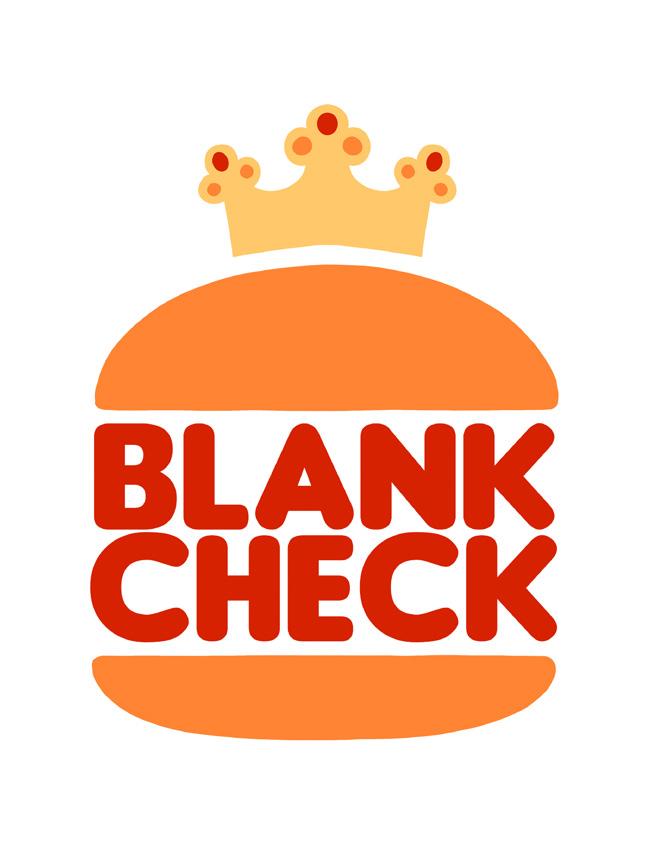
Hear ye, hear ye. Podcasters, cinephiles, and freaks - rejoice! Blank Check returns to Town Hall to commemorate their 10th Anniversary with a long-promised tribute to one of the greatest films in porch cinema history. To honor their “Decade of Dreams,” hosts Griffin Newman and David Sims cordially invite you to a royal audience with KING RALPH , the 1991 comedy written and directed by David S. Ward and starring John Goodman / Peter O’Toole. Enjoy an evening of reflection, analysis, elaborately produced, adequately-executed royalty-themed bits and more. God save our gracious podcast!


Marie Bardi-Salinas is thrilled to be returning to Town Hall to celebrate Blank Check’s Decade of Dreams. She’s been doing Social Media for Blank Check since 2021, and now does Social Media for another major entertainment brand that she is legally not allowed to talk about. You can listen to her on the podcast whenever the gang covers a new release movie, and she publishes the Check Book newsletter on Substack every Monday. She’d like to thank her husband David (not Sims) for his unwavering support, and her family for encouraging her to follow this very unconventional career path.
Ben Hosley has too many nicknames to include in his bio, and is famously from New Jersey. He is a professional podcast producer. He also is CEO of Congratulations, a fashion and lifestyle brand. And is the creator and impresario behind the annual holiday compilation, Slow Xmas. Ben loves films that he can watch “on his porch”, thus inspiring our “Porch Classics” series of Ben’s selections. He is our finest film critic.


“Downtown” Griffy Newms is an actor and comedian from New York City. He is known for his encyclopedic knowledge of box office charts and his affection for movie merch. Outside of Blank Check, you can catch him as the voice of Orko in Masters of the Universe on Netflix, and as Watto in the cult-favorite The George Lucas Talk Show.
David “The Spreadmaster” Sims is a film critic from New York City (by way of London?). Fans of the podcast know him for his meticulously organized spreadsheets of Oscar contenders (it’s hard to make his top five) and for his imagined tenure as CEO of Quibi. Outside of Blank Check, David is the staff film critic for The Atlantic and devoted father.


Blank Check is a weekly movie podcast about filmographies; specifically those of Hollywood directors who achieved massive success early on, and thus were given a series of “blank checks” to make whatever crazy passion projects they wanted. As hosts Griffin and David state every episode – sometimes those checks clear, and sometimes they bounce, baby!
Week to week, Griffin and David are often joined by notable actors, writers, directors and fellow podcasters to discuss the film at hand. Past guests include Kevin Smith, Rachel Zegler, Lin-Manuel Miranda and Leslye Headland.
Since 2015, the podcast has covered 41 current and classic directors – such as M. Night Shyamalan, Nancy Meyers, Christopher Nolan, and Stanley Kubrick – devoting an episode to each film in their oeuvre, as well as the occasional off-topic bonus episode.
Blank Check with Griffin and David is proudly an independent production.

Find Blank Check wherever you get your podcasts. Join our Patreon, Blank Check: Special Features, for exclusive franchise commentaries and bonus episodes. Follow us on social @blankcheckpod. Subscribe to our weekly newsletter ‘Check Book’ on Substack.
For partnership inquiries please contact info@blankcheckpod.com
STAFF FOR BLANK CHECK: DEMAND AN AUDIENCE WITH KING RALPH
Paul Sabourin Event Producer
AJ McKeon Associate Producer
Minick Production Assistant
Nate Patteron Production Assistant
JJ Bersch Researcher
StagePilot Video Production
Jordan Fish Pre-roll/ VFX Video Producer
Arin Sang-uari Photographer
Tim Doyle Poster Illustrator
Joe Bowen Crown Illustrator
Robert Hosley Special Project Graphic Designer
STAGEPILOT
Chris Korbey Director
Laura Valk Producer
Rachel Lee Project Manager
Chris Skiles Technical Director
Jaron Berman Director of Photography/Camera Operator
Katie Harris Camera Operator
Jeff Tan Camera Operator
Paul Nichols Camera Operator
Kellon Innocent Assistant Camera
Myranda Mallenbaum Utility
Michael Kessler and Laura Valk Editor
BLANK CHECK PRODUCTIONS
Griffin Newman Co-Host
David Sims Co-Host
Ben Hosley Executive Producer
Marie Bardi-Salinas Social Media
David Cho Partnerships
AJ McKeon Associate Producer/Editor
Alan Smithee Editor
JJ Bersch Research
Minick Production Assistant
Lane Montgomery Theme Song
Alex Mitchell Additional Music
Joe Bowen Artwork
Olly Moss Artwork
Pat Reynolds Artwork
Jordan Fish Video Producer
Nate Patterson Music Curator
MUSIC SELECTIONS
“Jubilant Fanfare” performed and original recording by The United States Navy Band
“Blank Check Theme (Royal Remix)” arranged by Alex Mitchell
Based on the “Blank Check Theme” composed by Layne Montgomery
“Pod save the Cast” lyrics by Griffin Newman & Marie Bardi-Salinas
Based on “God save the King” lyrics by Henry Carey / arranged by Jean Baptiste-Lully
Performed and original recording by The United States Navy Band
“Good Golly, Miss Molly” written by John Marascalco, Robert “Bumps” Blackwell / arranged by Rashad Brown
SPECIAL THANKS TO:
David S. Ward, Gabe Barreto, Luis Gomez, Ray Tintori, all past and future guests, Talkhouse, Sarah, Forky, Blaze, David Salinas, Pig, Sally White and Bastille Flowers and Events,a the entire Town Hall staff, IATSE and of course our King, John Goodman.
In memory of Tim Walker (1984 - 2024)
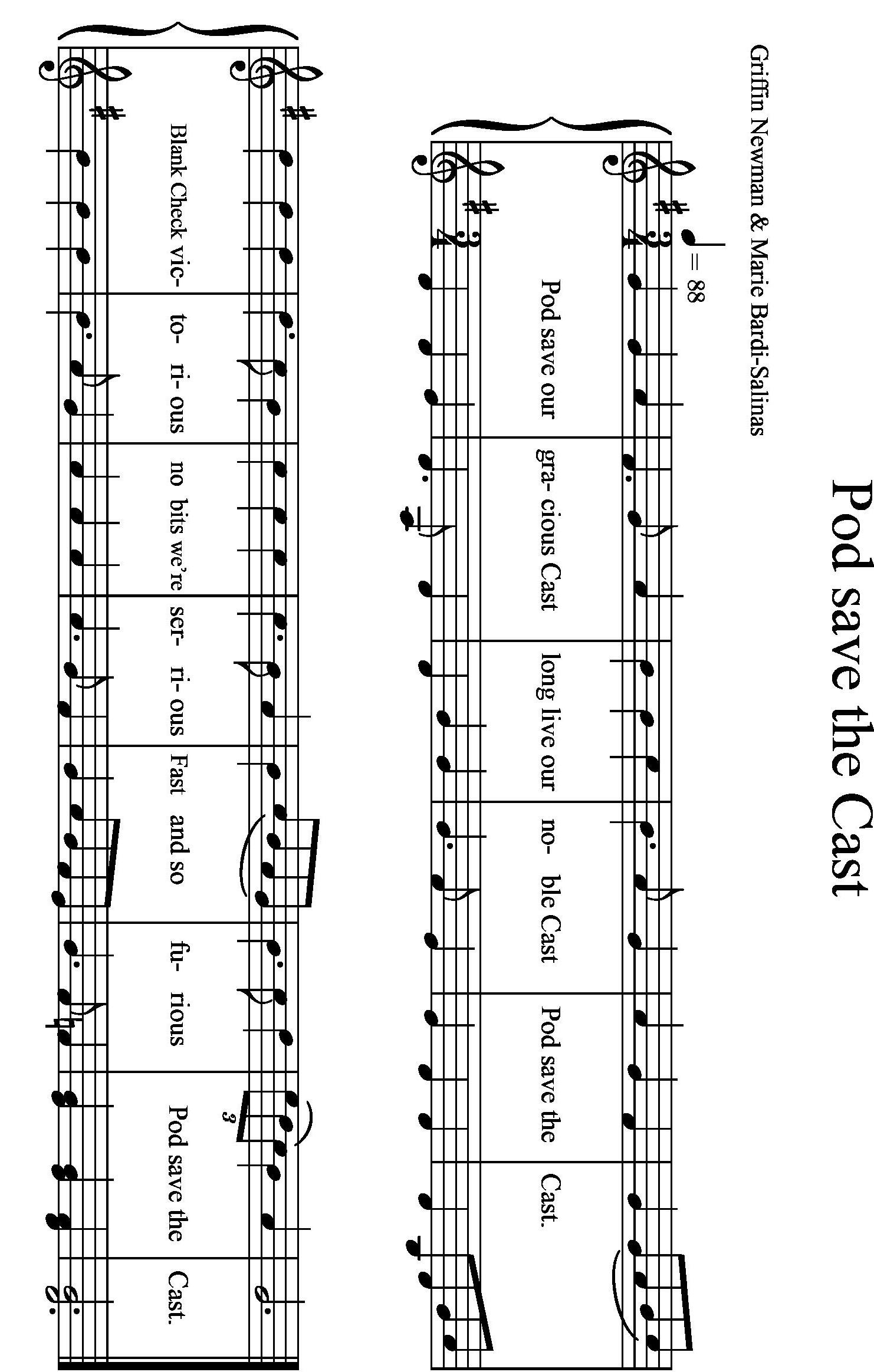
by JJ Bersch
After a long career as an actor, writer, and director on stage and screen, the multi-talented Welshman Emlyn Williams added another title to his extensive résumé in 1980: at the age of 75, Williams published his first fully fictional novel, Headlong, a comic fantasy in which a commoner makes an unlikely ascent to the throne of England. Its sordid story begins with freak horror: aboard the maiden voyage of a dirigible named the Sky Whale, the entire Royal Family perishes by “instant incineration” when the airship explodes. “All that remained,” writes Williams, “was a twisted tangle of steel girders.”
When David S. Ward first began working on his film adaptation of Headlong years later, the novel’s opening moments required an overhaul. The action in his version of the story—which would eventually bear the title King Ralph —had been transported from the 1930s of the novel’s narrative to Ward’s contemporary moment: the late 1980s/early 1990s. A half-century after the Hindenburg disaster, dirigible explosions were no longer much of a concern. So Ward concocted a new calamity for the Royal Family: death by electrocution, courtesy of a rainy day and some faultily assembled photography equipment.
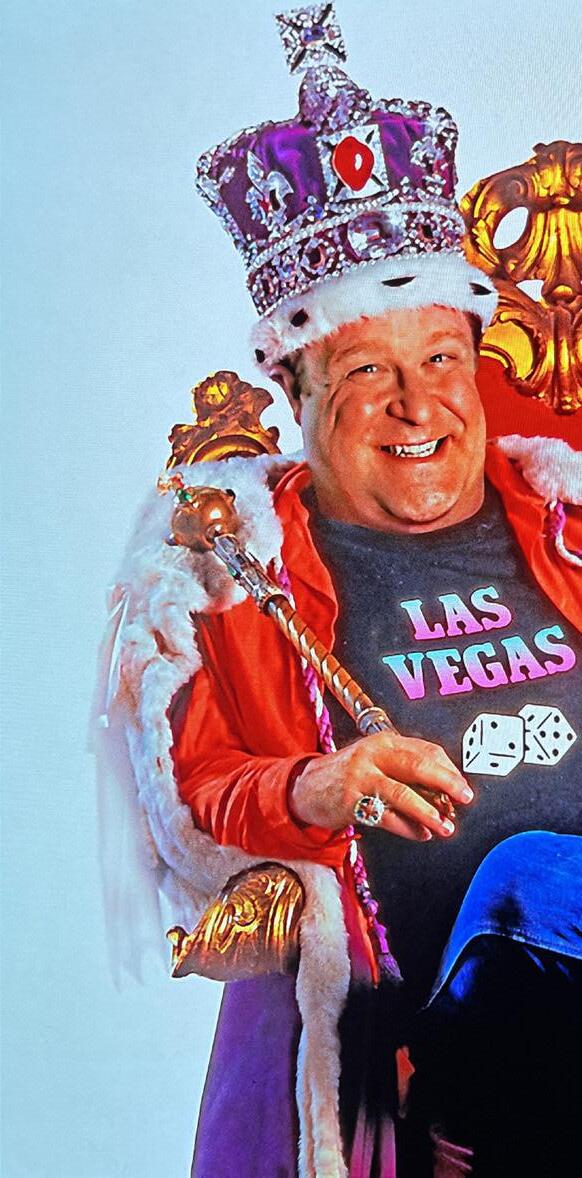

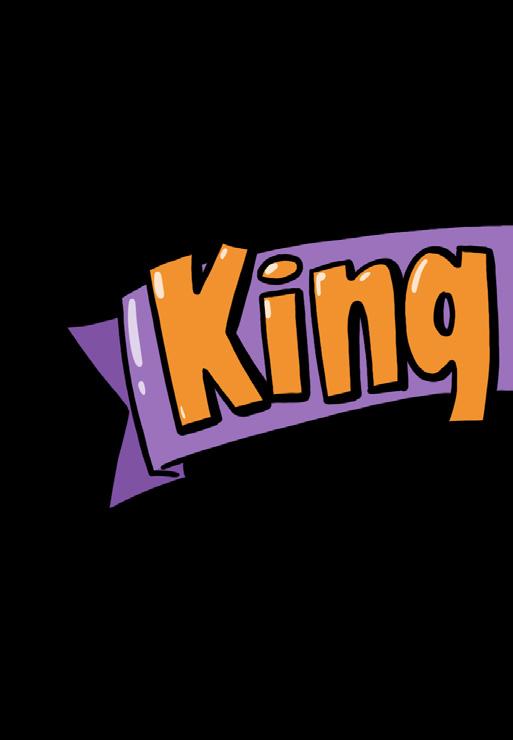
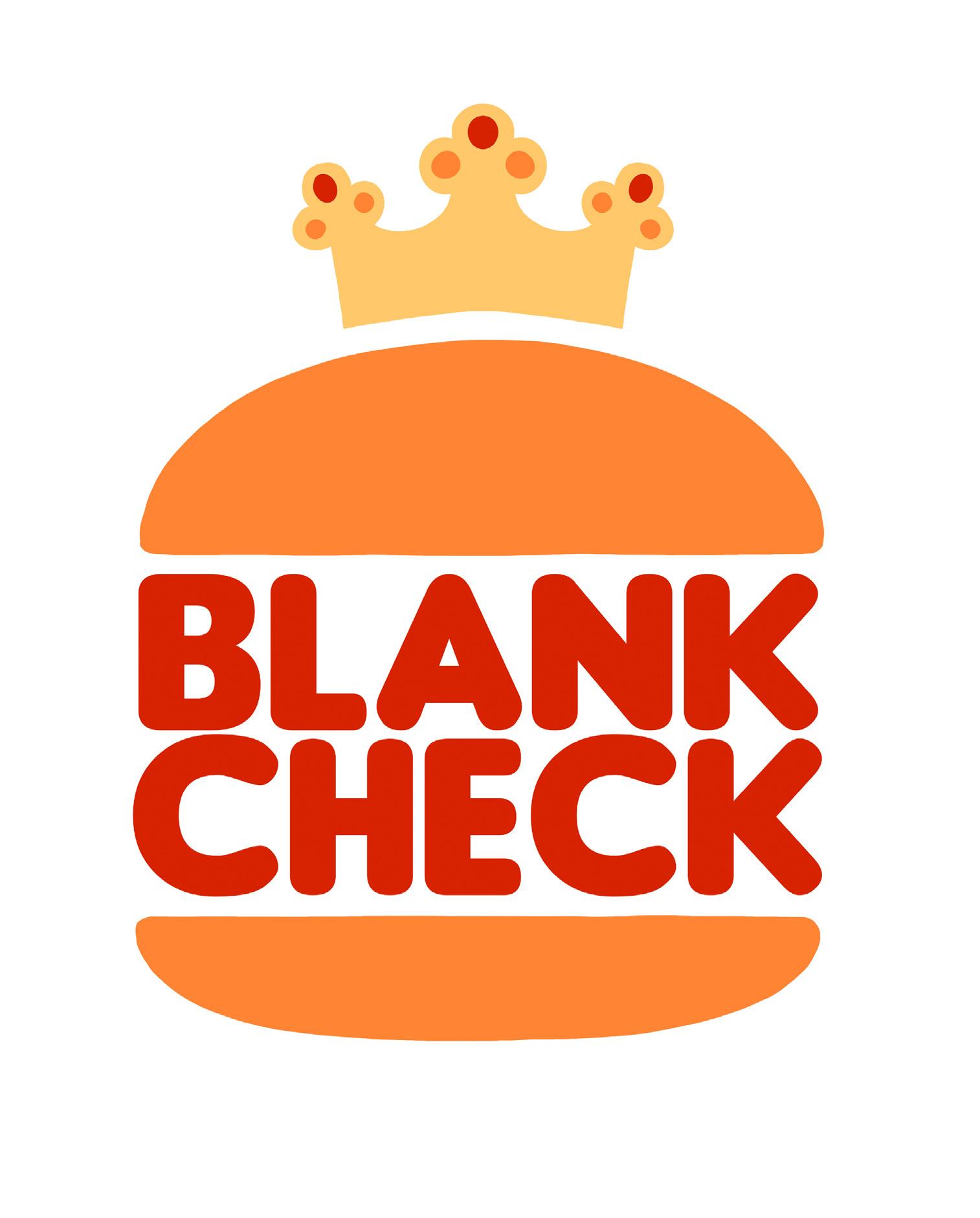
Ward was not the first writer to work on King Ralph, though his re-write of the script was significant enough to earn him the sole credit for its screenplay. The rights to Williams’s novel had first been acquired by Mirage Enterprises, the production company founded by Sydney Pollack in 1985. Originally, Ralph was developed with Pollack in mind as its director, but when the two-time Oscar winner shifted his focus to Havana his 1990 Robert Redford-starring Cuban Revolution gambling drama—he offered the director’s chair on King Ralph to the one-time Oscar winner Ward, who was coming off his biggest success as a director with 1989’s Major League
With Ward now attached as the film’s principal creative force—serving as both writer and director—the search began for a star to carry the film, which was set to be distributed by Universal. Though the studio would have preferred to have an established draw like Bill Murray or a rising star like Jim Carrey in the titular role, time and again the inquiries made to those kinds of names were met with the same response: the project’s timeline didn’t fit into those actors’ busy schedules.

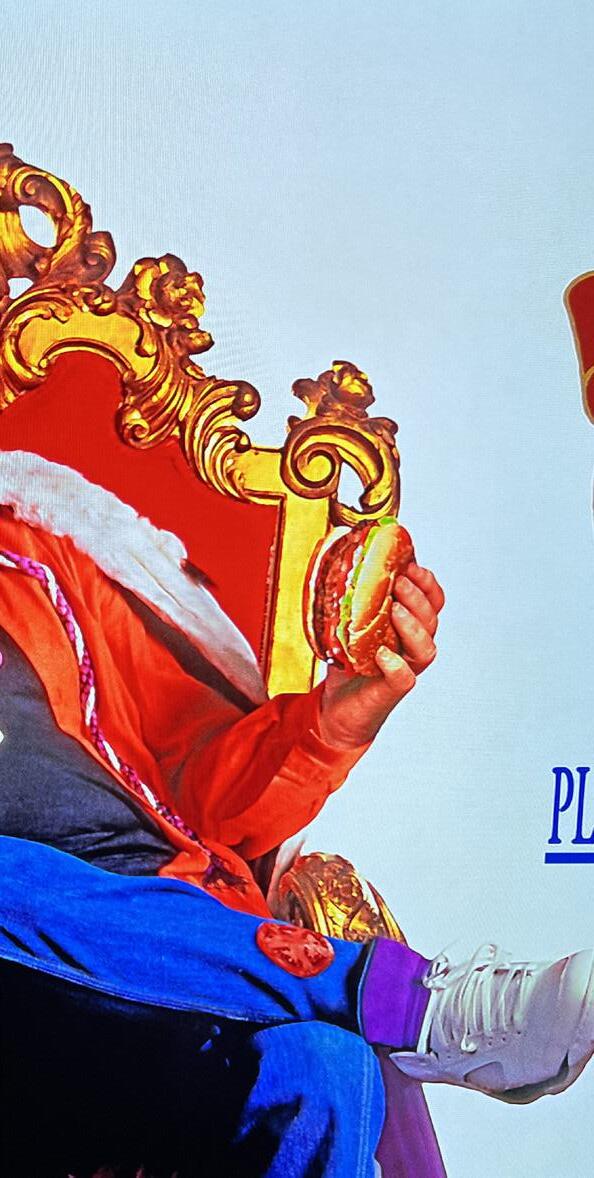
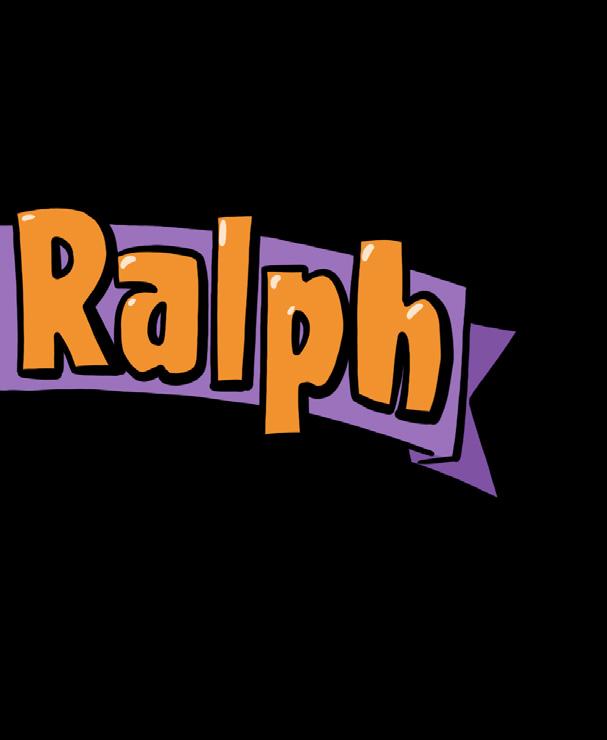

One day, Ward’s agent proposed a somewhat unlikely name: John Goodman, who was then known principally as a character actor on the big screen (in films like True Stories, Raising Arizona, and Punchline) and as a sitcom star on the small screen (on Roseanne, of course). Goodman had never starred in a studio film before, but the actor’s schedule was open, and Ward could envision Goodman as the kind of humble Midwestern transplant he had written as his film’s main character. (Williams’s novel, it should be noted, does not locate any of its story world in or near the state of Wisconsin; its lower-class protagonist is from Cornwall.)
The majority of the cast was then filled out with British actors, including firmly established thespians like Peter O’Toole and John Hurt alongside fresher faces like Camille Coduri and Joely Richardson. Quickly into the shoot, Ward noticed clear differences between the American actors he had come to know and the new actors he was now getting to know across the pond, especially when O’Toole delivered two perfect takes of a two-page speech like it was absolutely nothin’. Per Ward, “I thought, you know, this is what happens when you’re trained in Shakespeare. You’re able to do these long speeches and not blank and so that was a real lesson to me. … American actors tended to want to play things rather than say things.”
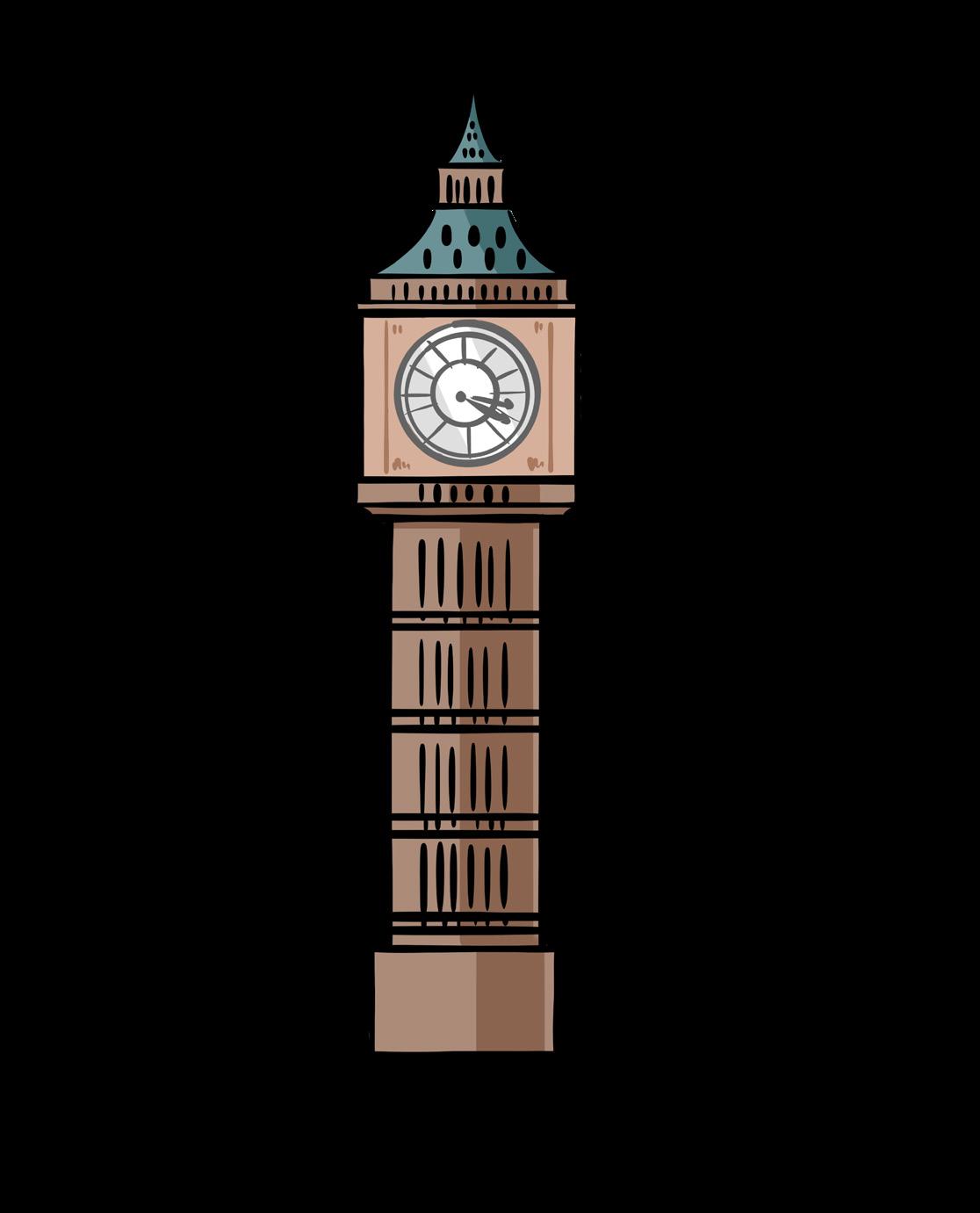

The production for King Ralph was based in the United Kingdom, with a wide array of real-life castles and other historic buildings—including London’s Somerset House, Oxfordshire’s Blenheim Palace, and Kent’s Hever Castle—subbing in for off-limits locations like Buckingham Palace and Windsor Castle. Ward estimates that threequarters of the shoot was held on location, with the remaining quarter taking place at the legendary Pinewood Studios. Principal photography commenced on April 17, 1990, with the shoot lasting somewhere between 50 to 60 days.
Reshoots later occurred in January 1991, just six weeks before the film’s premiere. Though Variety reported that the ending had been rewritten and reshot, Ward downplayed the severity of the reshoots, claiming that what actually spurred the trip back to England was the film’s stinger, in which Ralph—having abdicated the throne— lays down a slick studio cut of Gene Chandler’s “Duke of Earl.” (The executives, having previewed the film, wanted more of Goodman’s singing.)
Though Ward remembers the production of King Ralph fondly, the shoot was physically and emotionally demanding, especially given the constant travel between locations.

The burden of the shoot was especially hard on Goodman, who appears in almost every scene in the film. In an August 1990 interview with TIME magazine, Goodman claimed that he saw little of England aside from “the road between [his] house and the studio,” while he told The Los Angeles Times in February 1991 that, “When you’re the leading man, your meter’s running all the time and you’re always working. There’s no goof-off time.”
Particularly difficult was the film’s big comic set piece, in which Ralph attempts to liven up a stale royal party with a bravura performance of Little Richard’s “Good Golly Miss Molly.” In a 2019 interview with GQ , Goodman characterized the filming of that sequence as “endless,” further saying, “We kept doing it again and again and again and I’m like, you know, 150 pounds overweight and sweating battery acid by the end of the day and it just kept going—it was relentless.” Ward remembers Goodman as totally committed to that day’s shoot, though he worried that his lead actor would have a heart attack at any moment.

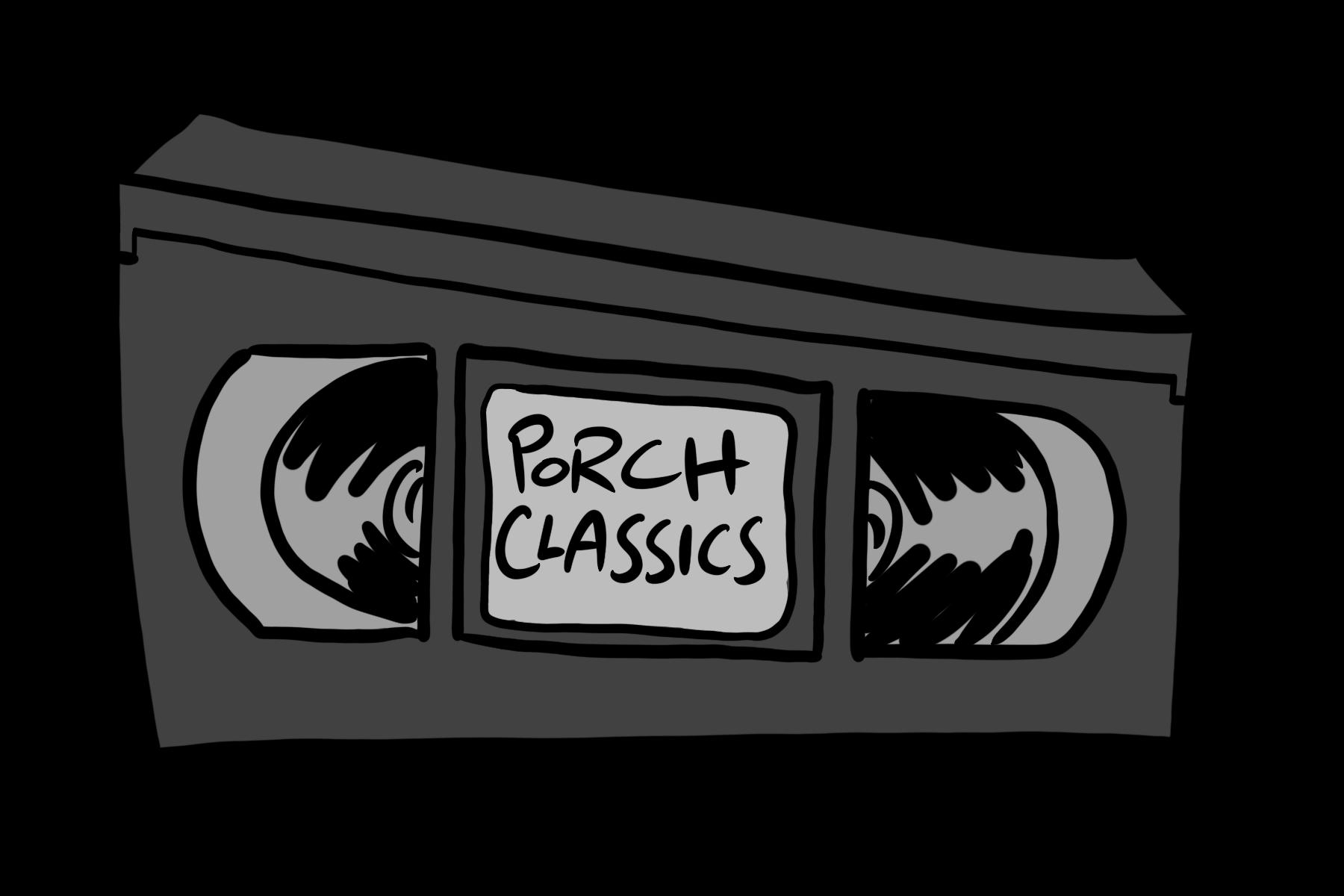
Contemporary press around the film highlighted two outside forces that played a part in shaping it, both of them royal. The first, as reported in the Los Angeles Daily News, was the actual Royal Family, with British officials requesting that the film eschew the usage of the name “Windsor,” the appearance of any stand-ins for real-life royals like Prince Charles or Princess Diana, and the on-screen electrocution of any childaged royal family members. Ward, though, was mostly unbothered by their demands: “Because the royal family is all dead at the beginning of the movie, you know, I had no conflict at all with them.” (He does claim, however, that at least one member of Parliament was outraged by the film’s story.)
The other external royal force exerting influence on the film was American: the Burger King, of course. King Ralph’s story takes its titular character to a London-based location of the noble fast food chain, where Ralph soon learns he can no longer easily mingle with common people. Along with lending its restaurant to the production, Variety noted that Burger King launched a massive four-week tie-in advertising campaign for King Ralph worth upwards of $8 million. Despite the big marketing spend, Ward pleads naivety about the product placement, claiming he simply considered it a good note from his studio: “I thought Burger King was the perfect place for him to go. That’s his kind of place! I didn’t even know there was one in England.”
King Ralph arrived in American theaters on February 15, 1991. It earned just north of $8 million in its opening weekend, good enough for third place at the Presidents’ Day weekend box office—or the value of one Burger King advertising campaign. It concluded its domestic haul at $34 million, with the worldwide gross estimated to be around $52 million.
The film was not a smash hit with the critics. Particularly scathing was the review found in the UK-based Sight and Sound magazine, whose writer Jonathan Romney deemed Ralph a “succession of witless stereotypes from start to finish” and a “vehicle for some
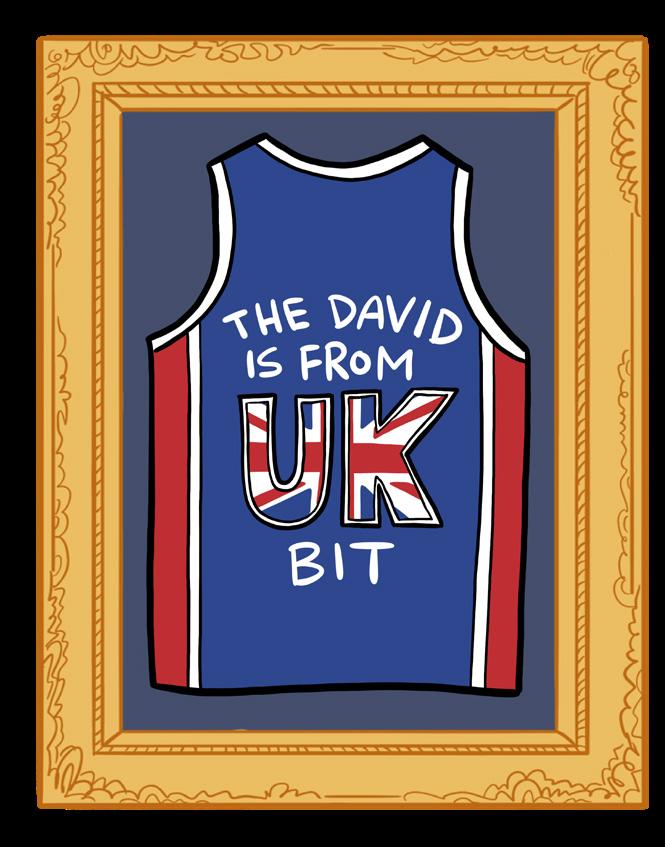

stale jibes at the most hackneyed English eccentricities.” Michael Wilmington of The Los Angeles Times called Ralph an “empty, puffed-up blob of a comedy,” while The Washington Post’s Hal Hinson was unconvinced of the typically great Goodman’s potential as a movie star: “In small doses, he’s a blessing -- a ton of fun. In larger ones, he’s a load.”
However, the film fared much better with at least one young critic in New Jersey, who declared King Ralph a certified Porch Movie classic. And it is thanks to him that we coronate the film—as well as the Decade of Dreams—on this special night.

Sources consulted: author interview with David S. Ward on May 30, 2025; Kirkus Reviews, February 1, 1980; AFI Catalog of Feature Films ; TIME magazine, August 13, 1990; Los Angeles Times, February 12, 1991; GQ , August 15, 2019; Variety, February 17, 1991; Sight and Sound, May 1, 1991; Los Angeles Times, February 15, 1991; Washington Post, February 14, 1991.

CHIPSMITH
GOODGOLLY MULAMBON THANKIT DECADE





We invite you to support the Hall at any level, and enjoy the exclusive benefits of becoming a Town Hall Member.
Pre-Sales & Discounts
Reserved Patron Circle Seats
Town Hall has played an integral part in the electrifying cultural fabric of New York City for more than 100 years. A group of suffragists’ fight for the 19th Amendment led them to build a meeting space to educate people on the important issues of the day. During its construction, the 19th Amendment was passed, and on January 12, 1921, The Town Hall opened its doors and took on a double meaning: as a symbol of the victory won by its founders, and as a spark for a new, more optimistic climate. Upon its dedication in 1921, The League for Political Education opened the building you are now sitting in with the watchwords:
“It does not matter who you are, what you are, or from where you come, you are welcome.”
That year, German composer Richard Strauss performed a series of concerts that cemented the Hall’s reputation as an ideal venue for musical performances. Since, Town Hall has been home to countless musical milestones: the US debuts of Strauss and Isaac Stern; Marian Anderson’s first New York recital; in 1945, Dizzy Gillespie and Charlie Parker introduced bebop to the world; Bob Dylan’s first major concert in ‘63; and much, much more
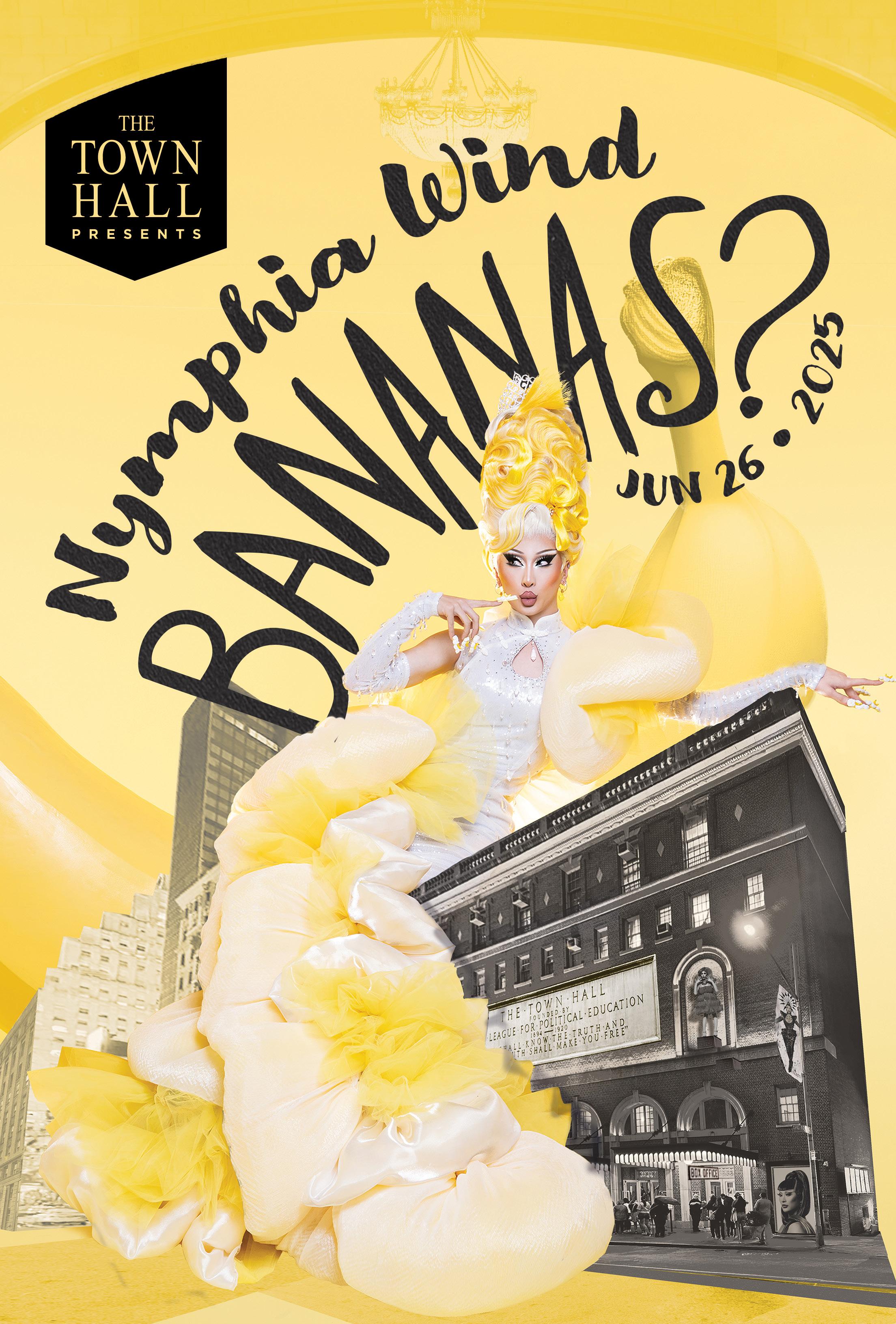


Programs are supported, in part, by public funds from The New York City Department of Cultural Affairs in partnership with the City Council. Town Hall’s Education Outreach Program is made possible, in part, by the New York State Council on the Arts with the support of Governor Kathy Hochul and the New York State Legislature. We would like to thank the following foundations, corporations, and government institutions for their support.
American Portfolios
Axe-Houghton Foundation
Bank of America
Charles D. Fleischman Charitable Trust
Consolidated Edison Company of New York
Edythe Kenner Foundation
Gund Investment Corporation
Howard Gilman Foundation
The Hyde & Watson Foundation
The IV Fund
National Endowment for the Arts
New York City Department of Cultural Affairs
New York State Council on the Arts
New York State Senator Liz Krueger
New York State Governor Kathy Hochul
New York City Mayor Eric L. Adams
Manhattan Borough President Mark Levine
New York City Council Member Keith Powers
New York City Council Member Gale Brewer
New York City Council Member Julie Menin
New York City Council Member Sandy Nurse
New York City Council Member Yusef Salaam
New York City Council Member Kalman Yeger
NYC Dept. Cultural Affairs Commissioner
Laurie Cumbo
New York University
Rea Charitable Trust
The Shubert Foundation
Tandon Family Foundation
Ticketmaster

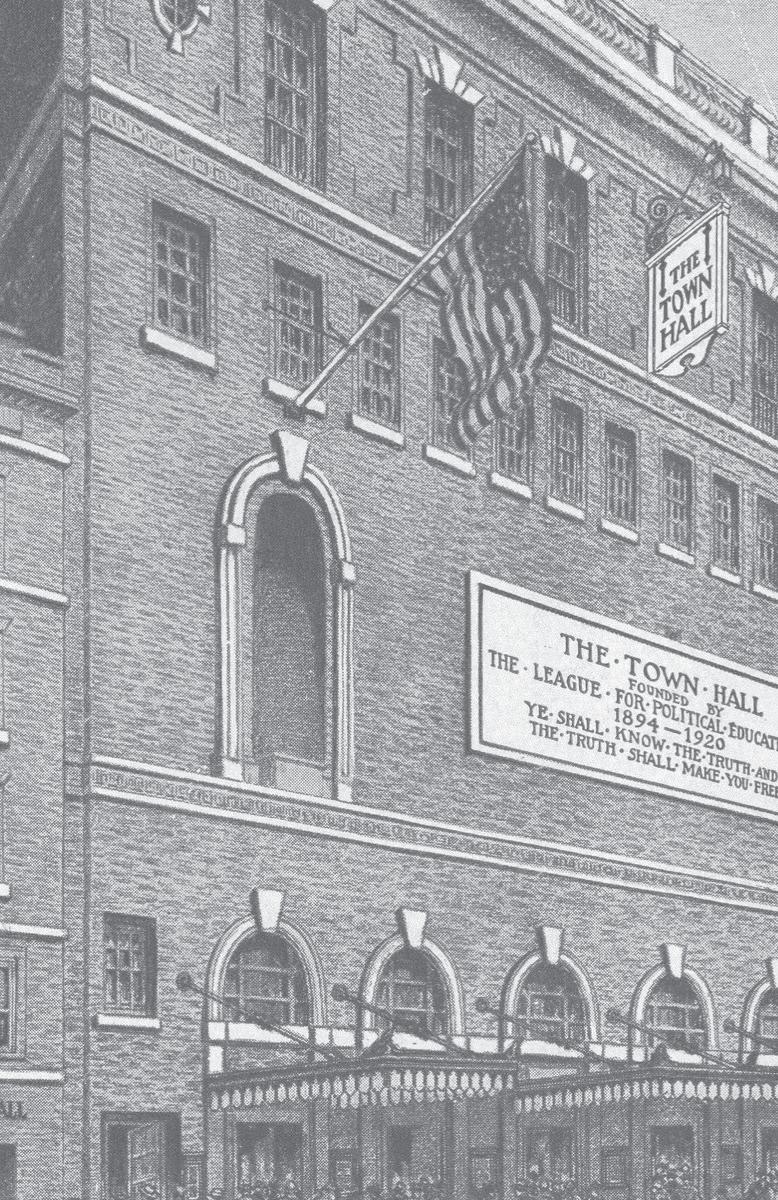


The Town Hall’s mission is to provide affordable world-class entertainment by new and established artists to a diverse audience; to inspire the youth of our community to appreciate and participate in the arts at The Town Hall and in schools through our Education Outreach Program; and to preserve and enhance The Town Hall as a historic landmark venue for the enjoyment and cultural enrichment of generations to come.
PRESIDENT
Nevin Steinberg
EXECUTIVE VICE PRESIDENT
Susan Zohn
VICE PRESIDENT & GENERAL COUNSEL
Ellen Miller-Wachtel
VICE PRESIDENT
Rita Robbins
TREASURER
Joan Rall
SECRETARY
Timothy Stambaugh
PRESIDENT EMERITUS
Tom Wirtshafter
Marvin Leffler
TRUSTEES
Anne Frank-Shapiro
Madhu Goel Southworth
Gita Gupte
John A. Jenkins
Benjamin Lewis
Thomas Mellins
Natalie Moreno Wexler
James Shackelford
LIFE TRUSTEES
Phyllis Putter Barasch
Mary Dettling-Wright
Bruce S. Leffler
BENEFIT COMMITTEE
Gita Gupte, Chair
John Jenkins
Thomas Mellins
Natalie Moreno-Wexler
James Shackelford
ADVISORY COUNCIL
Kathleen Rosenberg, Chair
Nancy Berman
Sandy Horowitz
Elizabeth Iannizzi
Candace Leeds
Zita Rosenthal
Rhoda Rothkopf
ARTS IN EDUCATION
ADVISORY COUNCIL
Michael Fram, Co-Chair
Dr. Eloise Messineo, Co-Chair
Barbara Murray
Dr. Pola Rosen
George Young
EXECUTIVE DIRECTOR
Matt Goldman
ARTISTIC DIRECTOR
Melay Araya
DIRECTOR OF DEVELOPMENT
Donna Banks, PhD
DIRECTOR OF BOOKING & EVENTS
Paul Cameron Hardy
HOUSE MANAGER
Johnny Lee Green
DIRECTOR OF FINANCE AND BUSINESS AFFAIRS
Abe Hirsch
DIRECTOR OF SPECIAL EVENTS
Laura Camien
DIRECTOR OF BUSINESS AFFAIRS
Helen Morris
DIRECTOR OF EDUCATION
Taione Martinez
BOX OFFICE MANAGER
Angel Rodriguez
CHIEF ENGINEER
Steve Franqui
ASSOCIATE MARKETING DIRECTOR
Alex Koveos
ASSOCIATE DIRECTOR OF ARTISTIC PROGRAMMING
Rinesty Rusli
BOOKING AND EVENTS ASSOCIATE
Olivia Magill
TECHNICAL DIRECTOR
Bill Dehling
PRODUCTION MANAGER
Carl Acampora
EXECUTIVE ASSISTANT
Brooke Ferris
EDUCATION PROGRAMS LIAISON
Ifẹmi Quiñones
ADMINISTRATIVE ASSISTANT
Britni Montalbano
CAPITAL CAMPAIGN CONSULTANT
Katherine DeFoyd, Growth for Good
PRINCIPAL DESIGNER
Leia-lee Doran
The photographing or sound recording of any performance or the possession of any device for such photographing or sound recording inside the theater without the written permission of the management is prohibited by law. Violators may be punished by ejection and violations may render the offender liable for monetary damages.
The exit indicated by a red light and sign nearest to the seat you occupy is the shortest route to the street. In the event of fire or other emergency please do not run, WALK TO THAT EXIT.
Thoughtless persons annoy patrons and endanger the safety of others by lighting matches or smoking in prohibited areas during the performances and intermissions. This violates a city ordinance and is punishable by law.
-FIRE COMMISSIONER
ADMINISTRATIVE OFFICES: 212.997.1003 Mon-Fri 9:30am to 5pm, for rental & membership info
BOX OFFICE: 212.840.2824 Mon-Sat 12 noon to 6pm. 24/7 Recording
Cell phones should be silenced prior to the performance as a courtesy to the performers and audience.
THETOWNHALL.ORG
@TOWNHALLNYC WARNING
